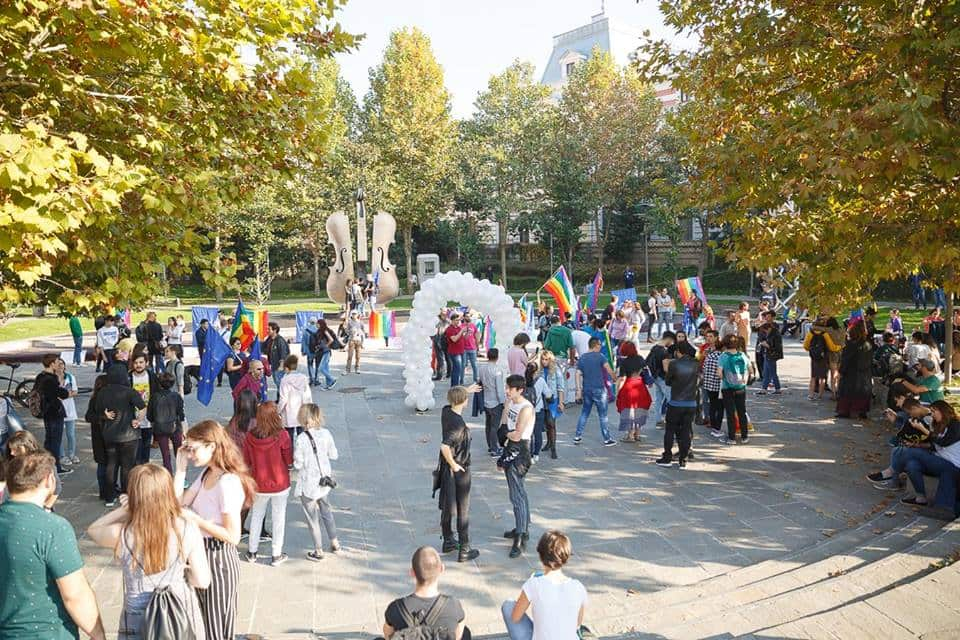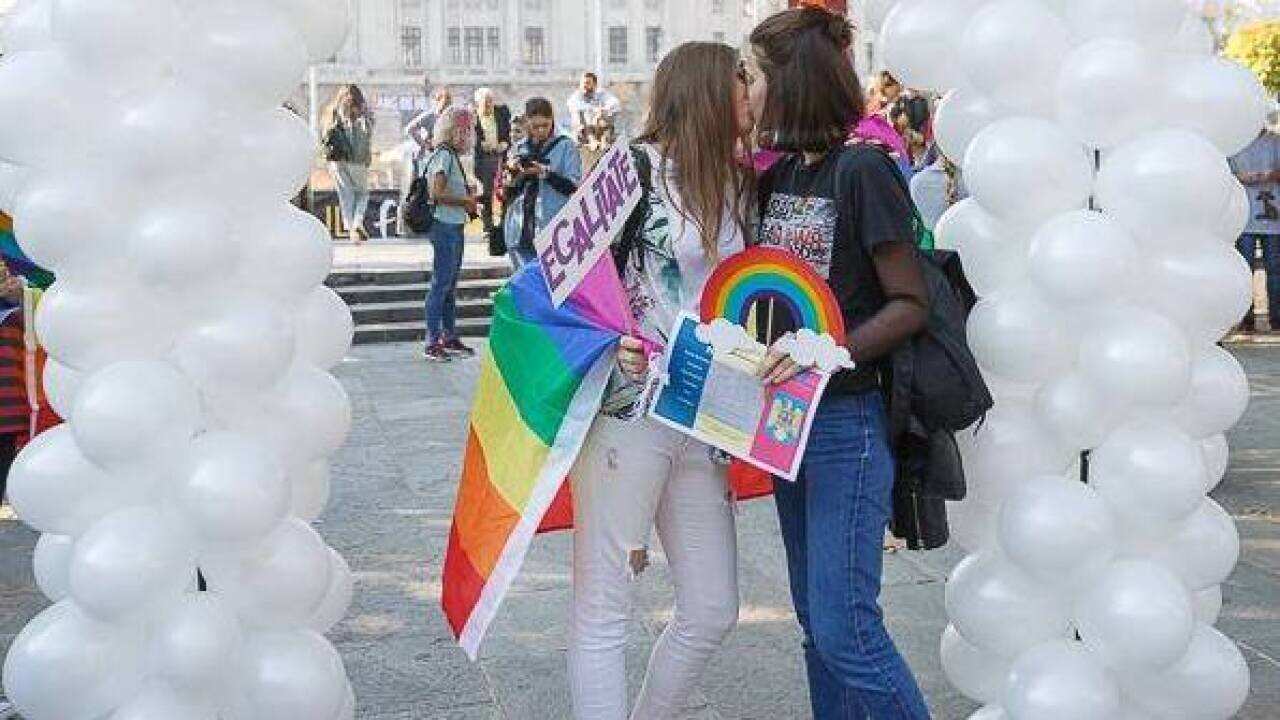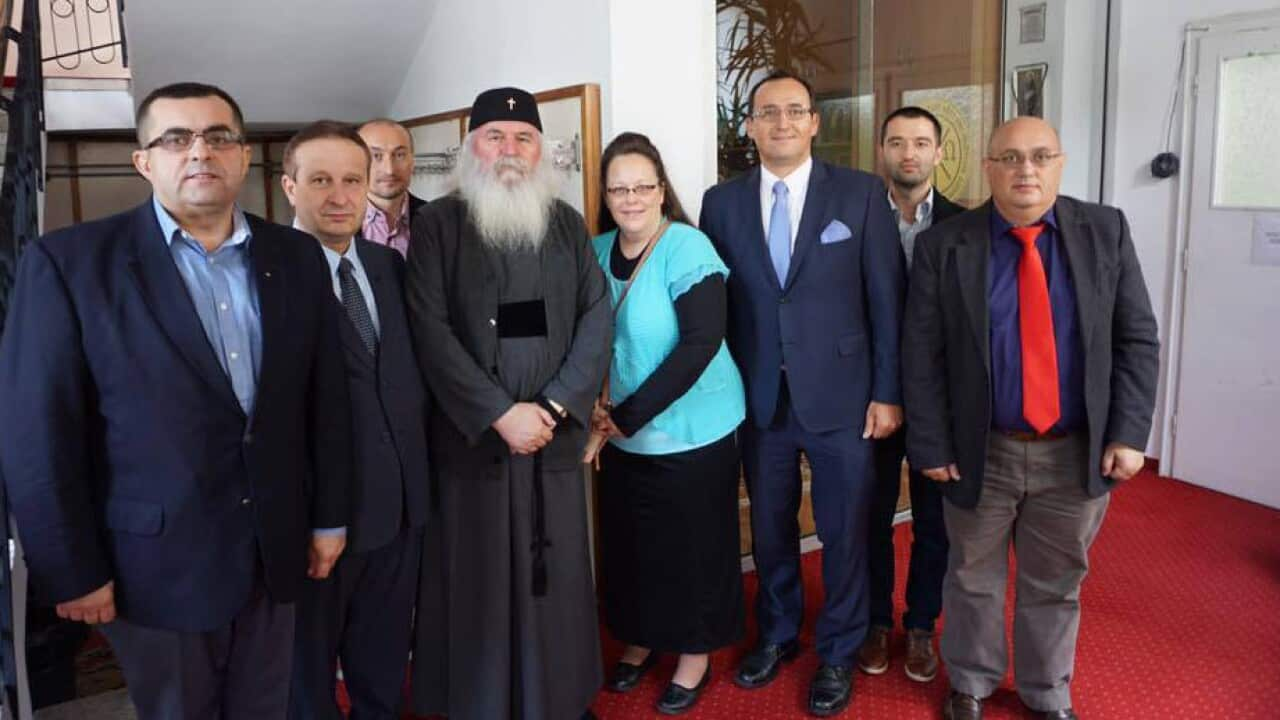While Australia is edging closer to legalising same-sex marriage following the Yes campaign’s success in the recent postal survey, Romania is gearing up for a referendum that could see same-sex marriage explicitly banned through an amendment to the constitution.
A conservative group named The Coalition for Family collected over last year in support of changing the country’s constitution to define marriage as being between a ‘man and a woman’ instead of the current wording of ‘spouses’.
In Romania, constitutional change can be initiated if at least 500,000 signatures have been collected. Following this, approval from the constitutional court and both houses of government is necessary before a national referendum with participation from at least 30 per cent of registered voters can take place. Vlad Levente Viski is an activist and chairman of, a Bucharest based LGBT+ organisation. He tells SBS that the campaign—which began in 2015—has had some predictable and some not-so predictable effects on the LGBT+ community.
Vlad Levente Viski is an activist and chairman of, a Bucharest based LGBT+ organisation. He tells SBS that the campaign—which began in 2015—has had some predictable and some not-so predictable effects on the LGBT+ community.

A recent LGBT+ rights event in Bucharest. Image: Supplied/Vlad Viski Source: Image: Supplied/Vlad Viski
“On the one hand, we have seen an increase in violent attacks on LGBT people,” he says. “There’s more transgender and gay people being beaten up on the streets because of their gender expression or sexual orientation.
“You do see this kind of hatred, you do see LGBT people being compared to paedophiles, there’s this talk of conversion therapy as well.’
...We’ve seen a reshaping of the conversation around LGBT people.
But on the other hand, in a country that decriminalised homosexuality as , Viski says the campaign has brought LGBT+ rights back into the spotlight for the first time in a very long time.
“There was no real talk in society up until 2001 about the role of LGBT people in society,” he says. “But no positive legislation has been passed for the past 16 years.
“So for these two years, throughout the debate concerning the referendum, we’ve seen a reshaping of the conversation around LGBT people.
“We have more people coming out, especially young people. We have more allies. We’re seeing more mobilisation, more protests, more events. More visibility. We have social media, which allows us to reach out to more and more people.”
Romania's 'No' campaign
MozaiQ along with other LGBT+ organisations in Romania (including the oldest group, Accept), have been mobilising to prepare for the impending referendum, but they’re up against some formidable opposition.
The majority of the country’s population belong to the Romanian Orthodox Church (), which the same-sex marriage ban.
Powerful US conservative groups —including the and the — have also thrown their support behind the effort to change the wording of the constitution.
In October this year, the infamous Kentucky county clerk Kim Davis with the Liberty Counsel’s vice president Harry Mihet to campaign against same-sex marriage.
“She visited about seven cities in Romania,” says Viski. “She presented her story of being arrested, she cried a lot."
However, Viski says the turnout for her appearances were quite low because Romanians aren’t as familiar with her story.
“They didn’t really have a lot of people that they reached, a maximum of 100 people attended one of her appearances she held.
“LGBT groups actually chose to keep silent and not make a big fuss about her visit in order not to publicise her visit over here,” he added.
Changing the course of history
The date of the referendum has not yet been announced—the initiative is still in the senate—but it is expected to take place next year.
“We’re expecting it to happen in the spring because winter is too difficult to mobilise people to go out and vote,” says Viski.
“Next year also marks 100 years since the reunification of Romania in 1918, so it will be a year full of nationalism.
“In many regards, politicians might use this referendum as another tool to present a case of traditional Romania and traditional families.”
Viski says if the anti-LGBT campaign is successful, it will have devastating legal and social effects for years to come.
“It will make it extremely difficult to legalise gay marriage in Romania in the next decade,” he tells SBS.
“Changing the constitution is an extremely difficult and long process so it would have an effect on generations to come.”
“It would also be a wildcard for discrimination against LGBT people, for violence, for other effects which could be long term.”
Looking to Australia
Viski says LGBT+ organisations, including MozaiQ, have been rallying the community together for social media campaigns and protests in anticipation of the referendum.
“We’re also planning different events where we offer solidarity to other minority groups such as the Roma— an ethnic group that are very discriminated against here.”
The recent ‘Yes’ vote in Australia’s marriage law postal survey has also provided a source of hope for LGBT+ Romanians.
“The decision in Australia was really well-received within the LGBT community in Romania.
“The community noticed it, they shared articles, they presented Australia as a positive example and in many regards, it gives hope to people all around the world that this happened in Australia.
“Every time gay marriage is legalised in one country, it has repercussions all around the world.”






